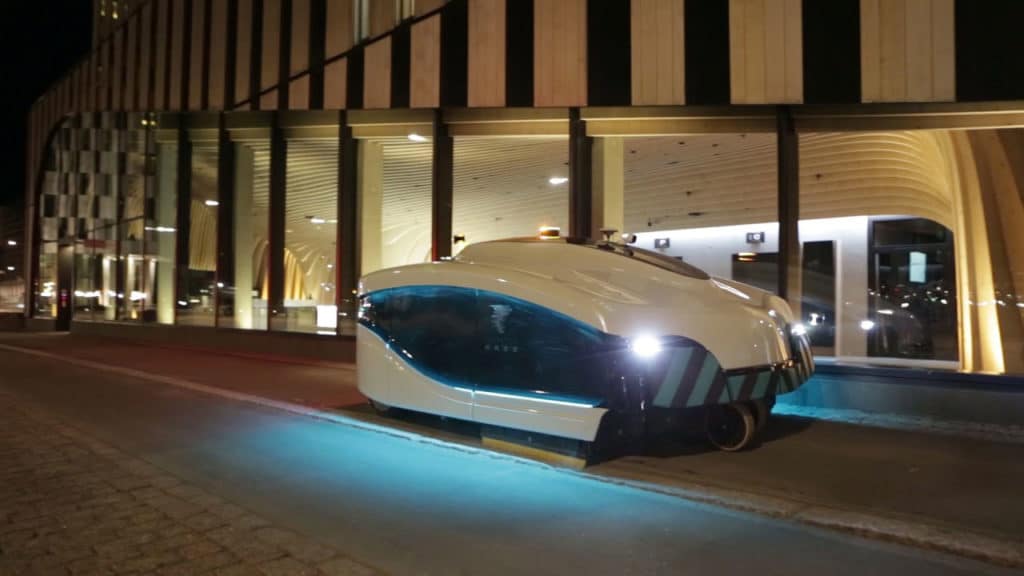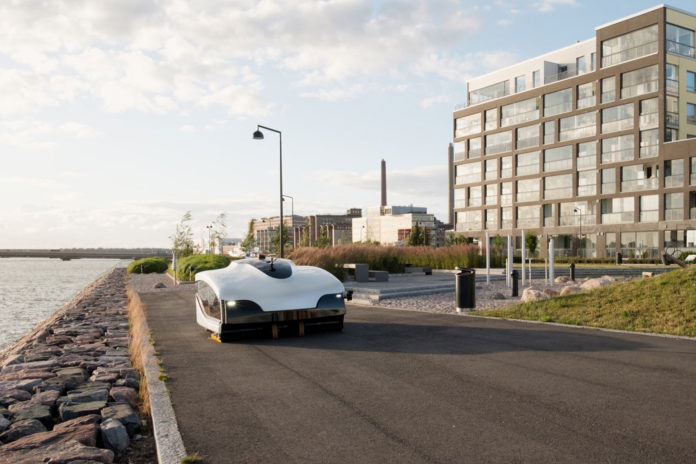Street cleaning is an integral part of the solid waste management system. In general, hand sweeping by an individual worker or a group, hose flushing, or machine sweeping or flushing are applied. It is a hazardous occupation due to the fact that it is conducted in traffic and is concerned with dirt and refuses, with the possibility of infection, cuts from broken glass, tins, and so on.
However, like many things in the future, the cleaning works will also be done autonomously. In Helsinki, a pilot trial has been launched where the cleaning robot Trombia Free will sweep the streets of the Finnish capital.

Developed by Finland’s Trombia Technologies, the fully autonomous electric street sweeper was first unveiled last year, and now the company has taken it to the streets of Helsinki as part of the Jätkäsaari Mobility Lab. The robot will begin operations along the Helsinki Baana bicycle lane as well as night-time street cleaning elsewhere in the city.
Trombia Free has a very modern design and measures 3.52 m long, 2.3 m wide, and weighs around 2,600 kg. The autonomous and electric street sweeper is so quiet that it makes it possible to sweep the streets at night, hindering traffic as little as possible. In addition, it has the ability to detect obstacles and pedestrians, although at the moment, it is not fully autonomous, and an operator monitors its operation.
The cleaner uses LiDAR technology and machine vision technology to circulate cleaning city streets and lanes and can operate in all weather conditions, at night and daytime. The actual sweeping and high-power dust removal speed is limited to 1- 6 km/h. Trombia Technologies says the robot uses less than 15% of the power required by conventional street cleaning technology; it needs only 6 to 10 kW of power to clean cities. In comparison, traditional diesel street cleaners use 70 to 130 kW of power.
For regular street cleaning operations, the Trombia Free’s battery can work for between 8.5 and 17 hours per charge or between 4 and 8 hours for continuous high-power street cleaning.
Trombia plans to start selling Free on the market sometime next year in pre-sales, but there is still no information on what it will cost.
